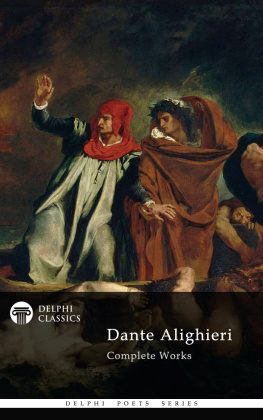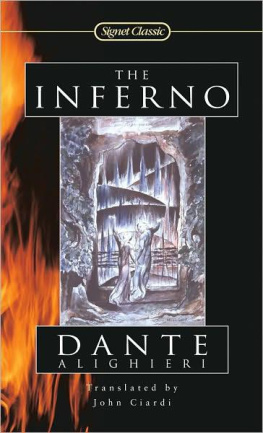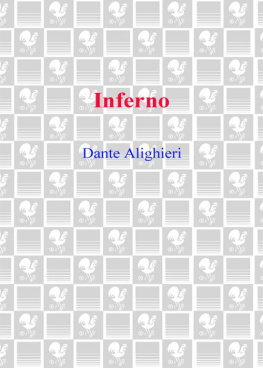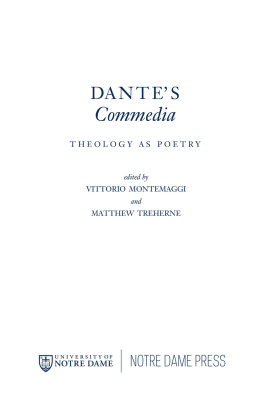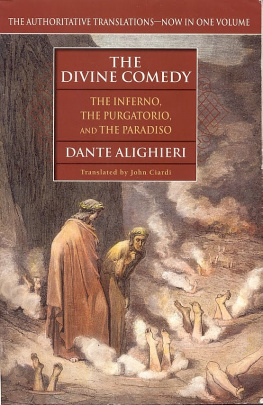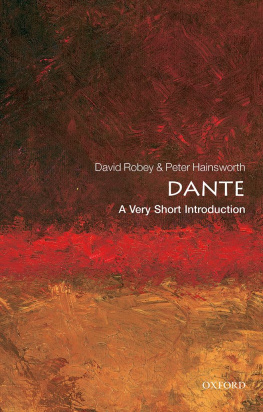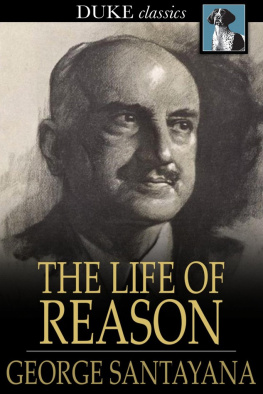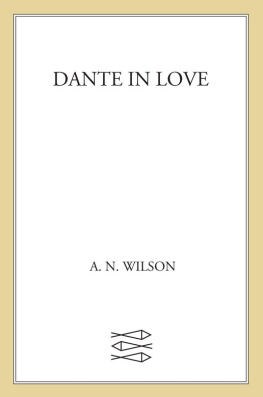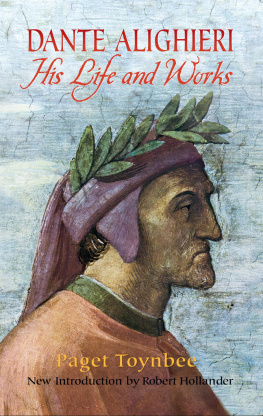

Fall River Press and the distinctive Fall River Press logo
are registered trademarks of Barnes & Noble, Inc.
Foreword 2009 by Michael Dirda
Cover design by Cat Tale Productions
All rights reserved. No part of this publication may be reproduced, stored in a retrieval system, or transmitted, in any form or by any means, electronic, mechanical, photocopying, recording, or otherwise, without prior written permission from the publisher.
ISBN 978-1-4351-4223-7 (e-book)
1 3 5 7 9 10 8 6 4 2
For information about custom editions, special sales, and premium and corporate purchases, please contact Sterling Special Sales at 800-805-5489 or specialsales@sterlingpublishing.com
www.sterlingpublishing.com
F OREWORD

T HREE P HILOSOPHICAL P OETS : L UCRETIUS , D ANTE , G OETHE originally appeared in 1910 as the first volume of the Harvard Studies in Comparative Literature. While based on a series of public lectures presented at Columbia University and repeated at the University of Wisconsin, the books content derived from a course its author had given for some time at Harvard College. Technically speaking, George Santayana taught in the philosophy departmentwhere his colleagues included such eminences as William James and Josiah Roycebut throughout his life he also wrote (and commented on) poetry, plays, and fiction. His only novel, The Last Puritan (1935), even became a bestseller. Santayanas students, many of whom revered him, included such revolutionary modernists as T.S. Eliot, Gertrude Stein, and Wallace Stevens.
Born in Madrid, Spain, in 1863, Santayana was brought up in Boston, but never felt wholly at home in American or Harvard culture. He rejected the ethos of making it, as well as the heritage of Calvinist propriety and the suffocating gentility and conformity of the Gilded Age. Instead he admired a more pagan Mediterranean exuberance and joyfulness, a desire to drink life to the lees and enjoy to the fullest our all-to-brief interval between cradle and grave. Yet like so many other advocates of living all you can (Henry James) and burning with a hard, gem-like flame (Walter Pater), he himself preferred a quiet, intellectual life, given over to travel, reading, and writing. To this end, Santayana carefully saved his money and in 1912 retired from teaching at the age of forty-eight. He spent most of the next forty years in Europe, never married, and died in Rome in 1952, cared for by an order of nuns.
What first strikes the contemporary reader of ThreePhilosophical Poets is the elegance and beauty of its prose. This shouldnt be too surprising, since Santayana is best known today for his aphorismsthese, for example, from TheLife of Reason: Those who cannot remember the past are condemned to repeat it; Fanaticism consists in redoubling your effort when you have forgotten your aim. Like Plato and Nietzsche, the cosmopolitan Santayana belongs to that rare company of thinkers who bring an essentially literary sensibility to philosophical speculation.
In his introduction to Three Philosophical Poets, Santayana tells us that these three poets sum up three attitudes toward life, Lucretius representing naturalism, Dante supernaturalism, and Goethe romanticism. Each tries to make sense of the nature of things (to borrow the usual translation of Lucretiuss DeRerum Natura), and they all present distinctive philosophies of life as well as reflections on our ultimate destinies.
In De Rerum Naturaan exploration of the universes fundamental natureLucretius begins by observing, says Santayana, that when things vanish, nothingness does not succeed; other things arise in their stead. Nature remains always young and whole in spite of death at work everywhere; and what takes the place of what continually disappears is often remarkably like it in character. This double experience of mutation and recurrence, he adds, led to a very great thought, perhaps the greatest thought that mankind has ever hit upon.... It is that all we observe about us, and ourselves also, may be so many passing forms of a permanent substance.
Lucretius then proffers the unexpectedly modern view that all things are composed of atoms, swerving and colliding, constantly recombined and recombining. No one else, stresses Santayana, has pointed out so often and so clearly... that nothing arises in this world not helped to life by the death of some other thing; so that the destructive movement creates and the creative movement destroys. To the philosopher Epicurus, whose views suffuse Lucretiuss poem, this inherent rhythm of the universe should be accepted as the way things are and we should live mild lives of temperate pleasure, preferring friendship to passion, and peacefully accepting our own mortality as part of the natural order. Santayana, however, argues that such quietism can only be approved by a fatigued and disillusioned spirit, and that death must be hated and feared by every vigorous animal. For what we truly dread, he insists, isnt so much non-existence as the defeat of a present will directed upon life and its various undertakings.
Despite his cavils, Santayana deeply admires Lucretius: Whether it be a wind blowing, a torrent rushing, a lamb bleating, the magic of love, genius achieving its purpose, or a war, or a pestilence, Lucretius sees everything in its causes, and its total career. One breath of lavish creation, one iron law of change, runs through the whole, making all things kin in their inmost elements and in their last end. Here is the touch of nature indeed, her largeness and eternity. Here is the true echo of the life of matter.
In his next essay, on Dante, Santayana offers a superb compact introduction to The Divine Comedy. He begins with the belief, traced back to Plato, that the worlds instability and evils result from our separation from God. But he then touches on Dantes political ideals and his very modern egotism, examines the presentation of Beatrice in the poets early book, La Vita Nuova, and explains his uses of symbolism and allegory:
Thus, throughout the Divine Comedy, meaning and meaning lurk beneath the luminous pictures; and the poem, besides being a description of the other world, and of the rewards and punishment meted out to souls, is a dramatic view of human passions in this life; a history of Italy and of the world, a theory of Church and State; the autobiography of an exile; and the confessions of a Christian, and of a lover, conscious of his sins and of the miracle of divine grace that intervenes to save him.
For all Dantes greatness, the humanist Santayana forthrightly views the Christian approval of Hells tortures as nothing less than a very great disgrace to human nature. By contrast, he speaks with particular admiration about the poets psychological insight, especially his understanding of love, whether honorable, mystical, or illicit:
Love itself dreams of more than mere possession; to conceive happiness, it must conceive a life to be shared in a varied world, full of events and activities, which shall be new and ideal bonds between the lovers. But unlawful love cannot pass out into this public fulfilment. It is condemned to be mere possessionpossession in the dark, without an environment, without a future. It is love among the ruins.... Abandon yourself, Dante would say to us,abandon yourself altogether to a love that is nothing but love, and you are in hell already. Only an inspired poet could be so subtle a moralist. Only a sound moralist could be so tragic a poet.
Next page

